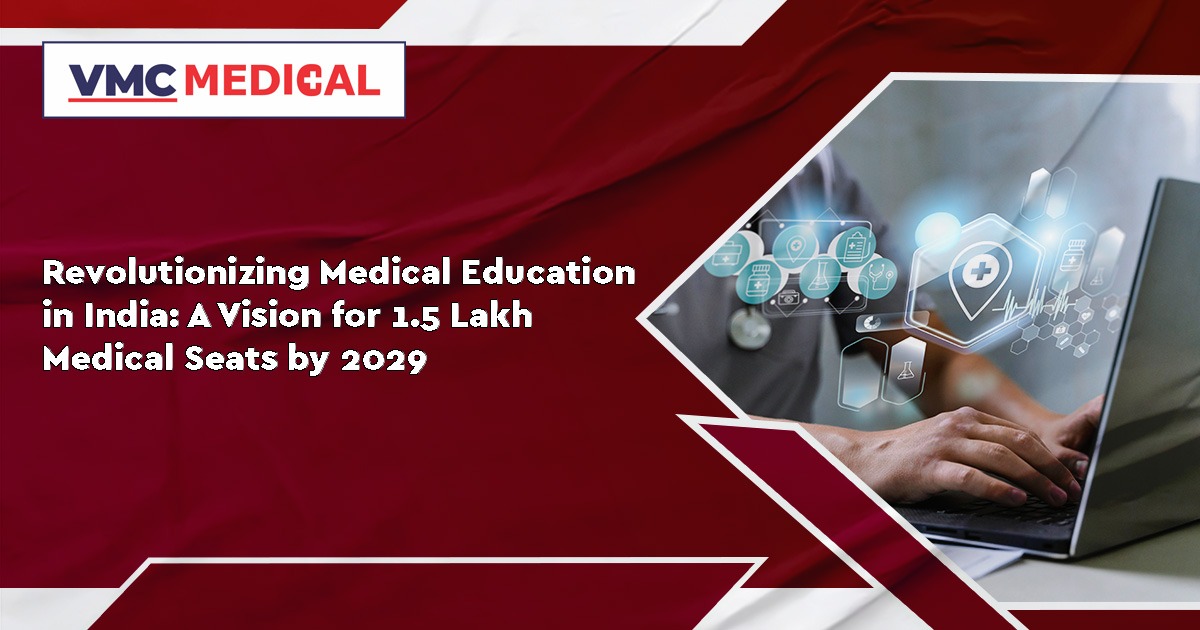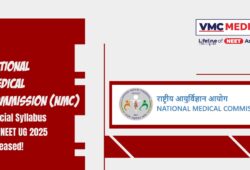Revolutionizing Medical Education in India: A Vision for 1.5 Lakh Medical Seats by 2029
 Posted On
Posted On
323 total views, 1 views today
In a promising announcement, Union Coal, Mines, and Parliamentary Affairs Minister Pralhad Joshi unveiled plans to significantly enhance medical education opportunities in India. Addressing a national seminar organized by COMED-K CARE in collaboration with the Education Promotion Society for India (EPSI), Minister Joshi expressed the government’s commitment to making approximately 1.5 lakh medical seats available in the country by 2029. This ambitious initiative aims to create a pathway for economically disadvantaged children to pursue their dreams of becoming doctors.
Reflecting on the progress made in recent years, Minister Joshi highlighted the substantial growth in medical education seats. He noted that in 2014, there were only 51,000 seats available, a number that has now risen to 1.1 lakh. Undeterred by these achievements, the government is resolute in its mission to further expand access to medical education, reaching the milestone of 1.5 lakh seats.
Sharan Prakash Patil, the Medical Education Minister, also addressed the seminar, emphasizing the importance of addressing the employment challenges faced by engineering graduates in the state. Patil acknowledged that the primary reason for this predicament is the lack of essential skills among students. In response, the government has devised comprehensive plans to bridge this gap and equip graduates with the skills necessary for the evolving job market.
The All-India Technical Education Council (AICTE) president, T.G. Sitaram, shared insights into the positive transformations occurring in technical education. Sitaram highlighted the council’s commitment to improving education materials, including revising textbooks and making them available in 13 languages. Furthermore, he proudly declared that colleges under the AICTE’s jurisdiction are proving their mettle, asserting that they are no less superior to prestigious institutions like the Indian Institutes of Technology (IITs).
M.R. Jayaram, president of Gokul Education Institutes and newly-elected president of EPSI, also participated in the seminar, along with T.G. Viswanathan, Chairman of VIT Institute of Education, and other esteemed figures from the education sector.
This groundbreaking announcement by Minister Pralhad Joshi signifies a paradigm shift in India’s approach to medical education. The commitment to adding 1.5 lakh medical seats by 2029 demonstrates the government’s dedication to fostering a robust healthcare system and providing equal opportunities for aspiring medical professionals.
A Glimpse into the Past and Present
Looking back to 2014, when the availability of medical seats was limited to a mere 51,000, the progress made over the years is commendable. The subsequent increase to 1.1 lakh seats reflects a concerted effort to meet the growing demand for medical education. Minister Joshi’s announcement now propels the nation into a new era, with plans to expand the seat count to an unprecedented 1.5 lakh.
This surge in medical seats aligns with the government’s broader vision of inclusive education, where socio-economic status does not hinder one’s access to quality healthcare training. By opening up opportunities for economically disadvantaged children, the government seeks to create a more diverse and representative healthcare workforce.
Addressing Unemployment Among Engineering Graduates
Minister Sharan Prakash Patil’s acknowledgment of the challenges faced by engineering graduates in securing employment sheds light on the need for a holistic approach to education. Recognizing that skills are paramount in today’s competitive job market, the government’s plans to bridge the skills gap are a step in the right direction. These initiatives will not only enhance the employability of graduates but also contribute to the overall development of a skilled workforce.
AICTE’s Transformative Measures in Technical Education
President T.G. Sitaram’s insights into the positive changes within the All-India Technical Education Council are indicative of a broader transformation in technical education. The revision of textbooks and their availability in multiple languages signifies a commitment to inclusivity and accessibility. Moreover, Sitaram’s assertion that AICTE-affiliated colleges are on par with esteemed institutions like IITs showcases the excellence and competitiveness embedded in these institutions.
The Road Ahead: Unveiling a Bright Future
As India gears up to accommodate 1.5 lakh medical seats, the implications for the future of healthcare and medical education are profound. This expansion not only addresses the immediate need for more healthcare professionals but also sets the stage for advancements in medical research, technology, and patient care.
The commitment to quality education, as highlighted by AICTE’s efforts, ensures that the incoming medical professionals are well-prepared and equipped with the necessary skills. The emphasis on inclusivity and accessibility will likely contribute to a more diverse and representative healthcare sector, capable of addressing the varied healthcare needs of the population.
Final Thoughts
In conclusion, the announcement made by Union Minister Pralhad Joshi marks a significant stride towards a brighter and more inclusive future for medical education in India. The collective efforts of the government, educational institutions, and industry leaders are shaping a landscape where education is not just a privilege but a right for every aspiring student. As the nation moves forward with these visionary plans, the prospect of a healthcare system driven by well-trained and motivated professionals becomes increasingly tangible.




